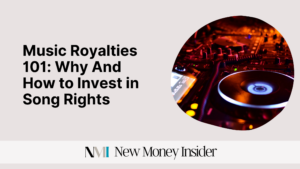
Source: Nintendolife
In 2021, a rare Pokémon card sold for an astounding $360,000.
This isn't an isolated event—trading card games (TCGs) have seen a massive surge in popularity and value.
As of 2023, the market valuation for trading cards stands at approximately $20 billion, with projections estimating it will grow to over $98 billion by 2027.
This growth is driven by several factors, including increased interest in collectibles, the nostalgia factor, and the rise of online marketplaces.
This also highlights the immense potential and growth in this hobby-turned-investment.
Key Takeaways
- The trading card market has a projected growth of over $98 billion by 2027.
- Popular trading card games have significant collectible and investment potential.
- The demographic for trading card games is diverse, including various age groups, genders, and backgrounds.
- The secondary market for trading cards is robust, with high-profile auctions, conventions, and online platforms playing key roles.
- Understanding card types, rarity, and condition (including PSA grading) is crucial for making informed investment decisions.
- Online platforms such as eBay, Heritage Auctions, and StockX offer broad reach and security for high-value card sales.
- Physical locations like major conventions, high-end card shows, and exclusive auction houses provide you with direct access to affluent buyers.
The Game Trading Cards Market

Here is a brief snapshot of the origins of the trading cards and how they have risen to prominence as an alternative investment.
Origins of Modern Collectible Card Games (CCGs)
In the early 1990s, the world of trading cards was revolutionized with the introduction of collectible card games (CCGs), spearheaded by Magic: The Gathering.
This introduced the concept of card rarity and limited-edition prints, making certain cards highly sought after.
This game, followed by others like Pokémon and Yu-Gi-Oh!, expanded the market.
Today, these games are more than just a pastime; they are a cultural phenomenon with a thriving secondary market.
Popular Game Trading Cards
Trading card games (TCGs) have become cultural icons, captivating millions of players and collectors worldwide.
Among the most popular are:
Magic: The Gathering: Launched in 1993

The Gathering (MTG) is often called the grandfather of modern TCGs.
You can find in it deep strategic gameplay and vast lore, with a dedicated player base.
MTG game's cards vary in rarity and can fetch you significant prices, with some rare cards selling for thousands of dollars.
Pokémon

Source: Dexerto
Since its debut in 1996, the Pokémon TCG has been a global sensation.
Its blend of collectible monsters and strategic battles has made it a favorite among both children and adults.
Its iconic cards like the first-edition Charizard are highly coveted, sometimes fetching prices upwards of $300,000.
Yu-Gi-Oh!

Source: Snkrdunk
Introduced in 1999, Yu-Gi-Oh! quickly became a major player in the TCG market.
Its fast-paced gameplay and the cultural impact of its accompanying anime series have kept it in the limelight.
Consider investing in its rare cards from early sets, especially first editions that are particularly valuable.
Who is Buying and Playing?
You’ll find that the demographic landscape of trading card games is diverse.
It covers various age groups, genders, and backgrounds.
Knowing who is buying and playing these games can help you understand market dynamics and opportunities. These can be divided into:
Age Groups
TCGs attract players from different age brackets.
While younger audiences (ages 6-18) are drawn to the collectible and playful aspects of games like Pokémon, adults (ages 25-40) often engage in games like Magic: The Gathering due to their strategic depth and nostalgia.
Gender
Historically male-dominated, the TCG community has seen increasing participation from women.
Initiatives to create inclusive environments and female-focused tournaments have contributed to this shift.
Backgrounds
TCG players come from all walks of life.
From casual collectors who enjoy the artistic and nostalgic aspects to competitive players who participate in tournaments for substantial prizes, the community is varied.
The rise of online platforms has also brought in tech-savvy individuals who enjoy the digital aspect of modern TCGs.
Understanding these demographics can help you tailor your buying, selling, and trading strategies to better meet the needs and preferences of different segments within the TCG community.
Secondary Market For TCG
The secondary market for trading cards is an ecosystem where collectors and investors buy, sell, and trade cards.
Understanding this market is crucial if you are looking to maximize your investments.
Auctions
You can attend various high-profile auctions, hosted by companies like Heritage Auctions or eBay.
These can help you identify the rare cards that offer the best ROI.
These platforms also fetch high prices for the most sought-after items. This makes them key venues for serious collectors.
Conventions
Consider attending events like Gen Con, Comic-Con, and various TCG-specific conventions.
These are hotspots for trading and buying cards and are a place for you to network discover rare finds and secure better deals.
Online Platforms
The rise of digital marketplaces has revolutionized the TCG secondary market.
Check out websites like TCGPlayer, Cardmarket, and eBay.
These provide extensive catalogs and real-time price tracking, allowing you to make informed decisions regarding buying and selling of cards.
Social media groups and forums also play a significant role in facilitating trades and sales, offering a more community-driven approach.
By leveraging these platforms, you can navigate the secondary market more effectively.
Ensure that you buy low, sell high, and expand your collection or investment portfolio strategically.
How to Buy Trading Cards?
Buying trading cards can be both exciting and overwhelming, especially if you’re new to this type of investment.
You need to understand the different types of cards and their difference for making informed purchases.
Here's what you need to know:
Understand Different Types of Cards
Base Sets vs. Expansion Sets
When dealing with trading cards, you’ll find primarily base sets and expansion sets.
Base sets are the original group of cards that are released when a new game or series debuts.
These sets form the core foundation of the game.
Expansion sets, on the other hand, are additional releases that build on the base set.
These cards introduce new characters, mechanics, and themes to keep the game fresh and engaging.
For example, in Pokémon, the Base Set includes iconic cards like Charizard, while expansion sets like Jungle or Fossil add more creatures and options to the game.
Rare, Ultra-Rare, and Common Cards
Cards are typically categorized by their rarity, which influences their value and desirability.
Common cards are those that you can easily find in most packs and are essential for gameplay.
Rare cards are less frequently encountered and often have special features like holographic foil or unique abilities.
Ultra-rare cards are the crown jewels, extremely hard to find and highly sought after by collectors.
They might feature special artwork, textures, or limited-edition prints.
Knowing the rarity of a card can help you determine its value and decide whether it’s worth your investment.
Condition and Grading (e.g., PSA Grading)
The condition of a card significantly impacts its value.
You can get the cards graded by professional services like PSA (Professional Sports Authenticator).
They assess factors such as:
- centering
- corners
- edges
- surface
The grading scale ranges from 1 to 10, with 10 (Gem Mint) being the highest.
A higher grade typically means a higher value.
Before you purchase or invest in any card, inspect its condition or look for its grading score to ensure you're getting what you pay for.
Ensure proper storage, such as using sleeves and hard cases that can help to maintain a card’s condition over time, preserving its value.
By understanding these key aspects of trading cards, you can make smarter buying decisions and get a good ROI on your investment.
Where to Buy Cards?
Physical Stores (Local Game Shops, Conventions)
You can buy trading cards from physical stores, such as local game shops.
These stores also host events, tournaments, and community gatherings, providing an opportunity to connect with other investors and card enthusiasts.
You can examine cards firsthand, ensuring their condition before purchasing.
Conventions are another excellent venue for buying cards.
Consider attending events like Comic-Con and Gen-Con that feature numerous vendors, exclusive releases, and trading opportunities.
The face-to-face interaction allows you to negotiate prices and discover rare finds that might not be available online.
Online Marketplaces (eBay, TCGPlayer, Official Game Websites)
Online marketplaces offer you the convenience of buying and a vast selection of trading cards.
Visit platforms like eBay and TCGPlayer that provide extensive catalogs, user reviews, and seller ratings, helping you make informed decisions.
Official game websites are also reliable sources, often selling the latest releases and exclusive sets.
Shopping online allows you to compare prices across different sellers and find the best deals.
Be cautious, though, and make sure to check the seller's reputation and return policies to avoid scams.
How to Sell Trading Cards?
Selling trading cards is profitable and can get you a good return on your investment if you know how to prepare and where to sell.
Whether you're offloading a few extras or selling a prized collection, these tips will help you maximize your returns.
Ensure Optimal Condition: Storage and Protection Tips
To get the best price for your cards, they need to be in optimal condition.
Proper storage is key. Use protective sleeves and top loaders to prevent physical damage.
Store cards in a cool, dry place to avoid moisture damage and warping.
For high-value cards, consider investing in hard cases or even secure display boxes.
Keep your cards organized by set and rarity to make it easier for potential buyers to browse your collection.
Getting Cards Graded: Pros and Cons
Grading your cards can significantly increase their value, especially for rare and valuable ones.
You can use grading services like PSA (Professional Sports Authenticator) to evaluate the card’s condition and get a grade from 1 to 10 assigned to them.
A high grade can boost your card’s market value and make it more attractive to buyers.
However, be warned that the grading can be expensive and time-consuming.
It’s important to weigh the cost of grading against the potential increase in sale price.
If you have cards of moderate value, the investment in grading might not be worthwhile.
Choosing a Selling Platform
Choosing the right platform to sell your cards depends on your goals and the type of cards you’re selling.
Here are the key differences between the online platforms and physical locations:
Online Platforms
Online marketplaces like eBay, TCGPlayer, and Facebook Marketplace give you access to a broad range of buyers and the convenience of selling from home.
These platforms allow you to reach collectors worldwide, and get higher prices for your rare category cards.
They also provide tools for setting prices, tracking sales, and communicating with buyers.
However, online sales can involve shipping costs and the risk of disputes with buyers.
You need to handle packaging and shipping, which can be time-consuming and costly.
Be careful in selecting selling platforms that help you maximize your returns along with offering secure, efficient transactions.
Here are some online platforms you can consider for high-value card sales:
eBay: As one of the largest global online marketplaces, eBay offers extensive reach and competitive auction formats. Your high-value card listings can attract international collectors, and the platform’s seller protections ensure secure transactions.
Heritage Auctions: This platform specializes in high-end collectibles, including trading cards. Heritage Auctions provides you with professional appraisal, marketing, and auction services, ensuring maximum exposure and high returns.
PWCC Marketplace: Known for handling high-value card transactions, PWCC offers you a secure and trusted platform with extensive market analysis and auction services. They cater specifically to serious collectors and investors.
Goldin Auctions: This online platform focuses on sports memorabilia and trading cards. Goldin Auctions is renowned for high-value sales and offers extensive marketing and auction support to reach affluent collectors.
StockX: Operates on a transparent bid/ask model, providing a clear market value for high-end cards. StockX’s authentication process ensures buyer confidence and higher price potential.
eBay Vault: A service provided by eBay for high-value collectibles, offering secure storage, insurance, and facilitate transactions. It helps you manage your collection and sell items with reduced risk.
CertifiedLink: An online auction platform specializing in certified collectibles. CertifiedLink provides detailed appraisals and marketing for high-value items, reaching a global audience of serious collectors.
Sotheby’s: Renowned for high-end auctions, Sotheby’s has a specialized department for collectibles, including trading cards. They offer professional appraisal and global marketing to attract elite buyers.
Beckett Marketplace: Known for its authority in card grading and value assessment, Beckett Marketplace provides you with a trusted platform for selling high-value cards, with tools to help you get top prices.
ComicConnect: While primarily focused on comics, ComicConnect also deals in high-value trading cards. They offer auction services and a network of affluent collectors looking for premium items.
Physical Locations
Selling at local game shops, card shows, or conventions can be a great way to move cards quickly.
These venues attract dedicated collectors who may be willing to pay a premium for instant gratification.
Also, face-to-face interactions allow for immediate payment and avoid shipping hassles.
However, the market is more localized, which might limit the potential buyer pool and price range.
By carefully preparing your cards and choosing the right selling platform, you can maximize your sales and enjoy the rewards of your trading card investments.
Here are some recommended physical locations for high-value card sales:
Major Conventions: You can visit events like San Diego Comic-Con or Gen-Con that attract high-net-worth collectors and investors. These conventions provide networking opportunities and high visibility for valuable cards.
High-End Card Shows: Shows like the National Sports Collectors Convention cater specifically to serious collectors and investors. These events offer direct access to a concentrated market of high-value buyers.
Exclusive Auction Houses: Places like Christie's or Sotheby's specialize in high-end auctions and provide you with professional appraisal and marketing services. They reach an elite audience willing to pay top dollar for premium items.
Specialized Card Shops: High-end card shops in major cities like New York or Los Angeles often deal in high-value cards and have established networks of wealthy collectors and investors. These shops offer you both personalized services and direct sales channels.
Luxury Trade Shows: Events such as the Miami Beach Antique Show or the Luxury Investment & Wealth Management Summit attract affluent individuals interested in high-value collectibles, including rare trading cards.
Exclusive Private Sales: Consider arranging private sales through high-end brokers or consultants that can ensure discreet transactions and high returns. These sales often involve direct negotiations with wealthy collectors.
Investment Clubs: Joining or presenting at clubs and organizations focused on collectibles and alternative investments can connect you with high-net-worth individuals looking to diversify their portfolios.
Art Galleries: Some art galleries also handle rare and valuable trading cards, especially those that are considered art pieces or have significant historical value. They provide you with a unique venue for reaching high-end buyers.
Luxury Auction Events: Participating in high-profile auction events organized by prestigious houses like Bonhams or Phillips can provide significant exposure and high selling prices for valuable cards.
Sports Memorabilia Shows: Major sports memorabilia shows often attract wealthy sports enthusiasts and collectors. These events provide an ideal setting for selling high-value sports cards.
By leveraging these platforms and locations, you can maximize their returns and ensure secure, efficient transactions.
Each of these options offers unique advantages, from global reach and professional marketing to exclusive access to affluent buyers, allowing you to choose the best fit for their needs and goals.
Conclusion
Game trading cards have evolved from simple collectibles to a dynamic and valuable market.
Understanding the market size, how to buy and sell, and strategic tips are crucial if you want to invest in them and earn a handsome profit.
Whether it's knowing where to buy, how to evaluate card value, or strategies for selling, each aspect plays a significant role in maximizing your experience and investment.
Disclaimer: The information provided in this article is for educational purposes only and does not constitute financial advice. Always consult with a qualified financial professional before making investment decisions.
FAQs
What factors are driving the growth of the trading card market?
Increased interest in collectibles, nostalgia, and the rise of online marketplaces are key drivers of market growth.
Which trading card games are most popular among collectors?
Magic: The Gathering, Pokémon, and Yu-Gi-Oh! are among the most popular trading card games with significant collectible value.
How can I determine the value of a trading card?
Card value is determined by its rarity, condition, and demand, often assessed through professional grading services like PSA.
What are the best online platforms for selling high-value trading cards?
Heritage Auctions, eBay, PWCC Marketplace, and StockX are some of the best platforms for selling high-value trading cards.
Where can I buy trading cards in person?
Local game shops, conventions like Comic-Con, and specialized card shows are excellent places to buy trading cards in person.
What should I consider when selling my trading cards?
Ensure cards are in optimal condition, consider grading, and choose the right platform or location to maximize returns.
What demographic groups are most engaged in trading card games?
Trading card games attract a diverse demographic, including children, adults, men, and women from various backgrounds.



